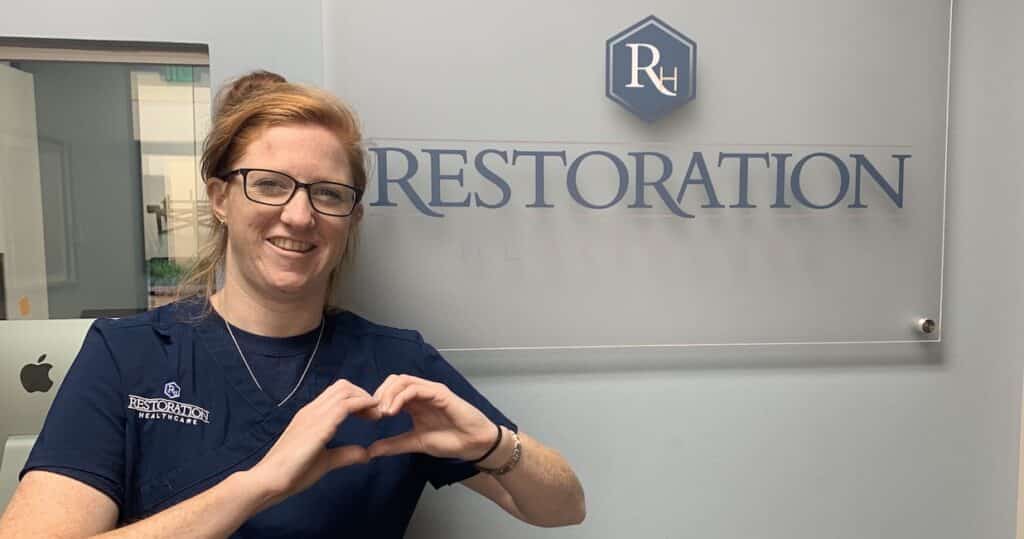12 Heart-Healthy Tips for Valentine’s Day

With Valentine’s Day upon us and red and pink hearts everywhere, now is a good time to remind you of the importance of self-love. Although the heart is universally accepted as a symbol of love, it is also one of the most neglected organs in the human body. Part of that, no doubt, is because the heart is generally so reliable.
It’s easy to take an organ the size of a human fist for granted, especially when it continues to function like clockwork without a single conscious thought or action on your part. It even keeps the beat while you sleep!

The average human heart has a resting beats per minute (bpm) of around 60 to 70. That’s around 4,200 times per hour, and 100,800 times per day. If you live to the age of 90, your heart will have beaten more than 3.2 billion times. As a result, it seems the only time most of us ever really think about heart health is when something goes wrong. And by that time, it might be too late to reverse damage resulting from long-term abuse or neglect.
Here at Restoration Healthcare, a Southern California Functional Medicine practice, we suggest that you don’t wait until it’s too late to optimize your cardiovascular system and ensure that you have a healthy heart. Use this Valentine’s Day to pledge your love to your heart. Then make it feel that love by taking simple steps to improve your cardiovascular health.
For example, below are 12 heart-healthy tips for Valentine’s Day:
- Stop beating yourself up. As humans, we’re known for being our own worst enemies. While a certain amount of soul-searching and introspection is a good thing, focusing too much on what you perceive to be your own shortcomings can cause stress and contribute to being diagnosed with high blood pressure. If you’ve been hard on yourself as of late, use this Valentine’s Day to start the heart-healthy habit of being kind to the person you face each day in the mirror.
- Load up on heart-healthy veggies and fruits. Leafy green vegetables, such as kale and collard greens, contain a wealth of vitamins, minerals, and antioxidants. They’re also a good source of dietary nitrates, which reduce blood pressure, decrease arterial stiffness, and improve cell function. In the fruit category, berries are a good choice, including strawberries, blueberries, blackberries, and raspberries. Beets are also good for reducing inflammation and in improving oxygenation throughout the cardiovascular system.
- Order the surf, not the turf. If you’re dining out this Valentine’s Day or over the weekend, fatty fish — including salmon, mackerel, and sardines — are good choices because they’re loaded with heart-healthy omega-3 fatty acids, known for their heart benefits. On the other hand, try to avoid thetemptation to order cut, red meat that may be high in saturated and trans fats — two “bad fats” that tend to clog the arteries.
- Pamper yourself. Many of us are solitary creatures. If you find yourself flying solo this Valentine’s Day, consider scheduling a spa treatment. If that sounds too indulgent— or quite frankly, too expensive — stop by a local nail salon for an affordable mani-pedi treatment. In addition to making your hands and feet look fantastic, a professional manicure or pedicure can improve blood flow and boost the health of your nails.
- Exercise regularly. To reduce inflammation in your blood vessels — which is essential to a healthy cardiovascular system — we recommend exercising for at least 30 minutes daily, five days a week. Even activities such as Pilates and yoga, in addition to interval training, weight training, walking, and being active throughout the day, are all beneficial if your doctor clears you for such activity.
- Opt for dark chocolate. If you’re going to indulge in eating candy this Valentine’s day, reach for the dark chocolate over milk chocolate. Dark chocolate is rich in flavonoids, which may contribute to boosting heart health.
- Improve your Vitamin D levels. If you aren’t in the habit of having your vitamin D level tested (and addressed if any deficiency is found), talk to your physician about doing so. A growing body of evidence points to vitamin D deficiency as a leading risk factor for heart attacks, as well as many of the conditions associated with high blood pressure and diabetes.
- Practice mindfulness. Mindfulness — the practice of actively and intentionally noticing new things — places you in the present, which is energy-begetting, not energy-consuming. By choosing to playfully pay attention to what’s going on around you, rather than operating on assumptions, you can naturally reduce stress.
- Ask your doctor about taking a Coenzyme Q10 supplement to support heart muscle. Coenzyme Q10 (aka CoQ10) — a fat-soluble antioxidant present in all human cells — is naturally produced by our bodies but its production is susceptible to decreasing as we age. Many health conditions — including heart disease, migraine headaches, diabetes, and even infertility — have been linked to lower than normal levels of CoQ10. Ask your doctor if a CoQ10 supplement is right for you.
- Find out if you should have your hs-CRP and homocysteine levels checked. Your level of C-reactive protein (CRP), which can be measured by testing your blood, increases when there’s inflammation in your body. A test for hs-CRP — which stands for “high-sensitivity C-reactive Protein” — is used to help your physician assess your risk of developing disorders that can negatively affect your cardio and vascular systems.
- If you smoke, stop smoking! Nicotine is a vasoconstrictor that narrows the arteries, making the heart pump harder. Smoking is the most preventable cause of premature death. One of the best things you can do for your heart is to give up smoking or help a loved one quit.
- Check levels of oxidized LDL and insulin and address any imbalances. Oxidized LDL (low-density lipoprotein) is associated with metabolic syndrome traits such as obesity, dyslipidemia, hypertension, and insulin resistance — conditions that often play a role in heart-related episodes that can result in death.
While your sweetheart may hold the key to your heart, a heart-healthy diet and lifestyle — which includes regular physical activity and self-love — is another important key to a long and healthy life. This Valentine’s Day, let’s all give our hearts the heartfelt gifts of self-love, a proper diet, and heart-healthy exercise. Take care of your heart, so it can continue to keep the beat for decades to come.

